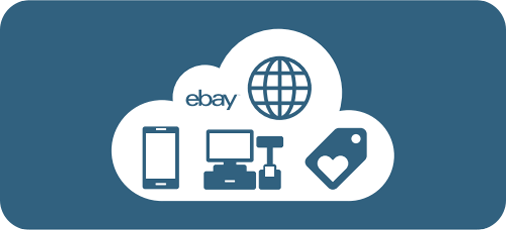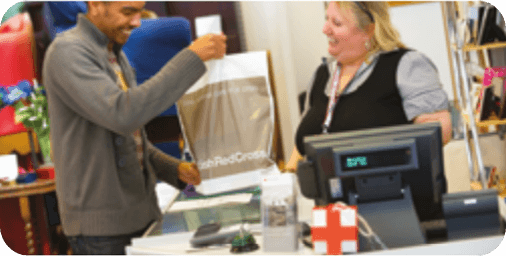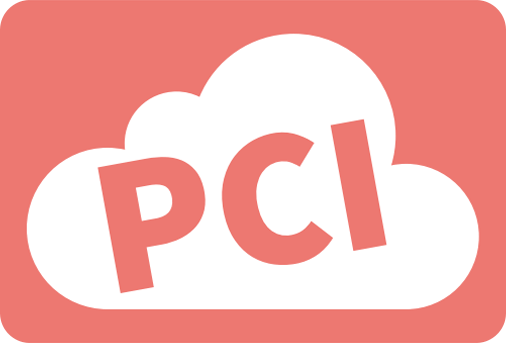EPoS: Which system is right for you?
7 insights to help you sell more and manage less
Your guide to the right answer 2016
What are you looking for?
Choosing an EPoS system is a major investment for any independent retailer. The answer to which retail system is right for you depends on a whole host of things.
To make the right decision, you need to explore all aspects of your business from the problems to opportunities you are currently facing.
These can range from new sales channels you might like such as Pop-Up shops, eBay or ecommerce; ways to create new customer experiences; loyalty programs; gift cards; delivery options; through to your inventory; warehousing and merchandising requirements.
EPoS today goes beyond just transactions and inventory. The right system can help you increase your sales, earn more and make your life a lot simpler.

This short guide helps you consider:
- What will your business need in three or five years?
- Do you need to integrate ecommerce, mail order, eBay or Pop-Up shops?
- What are your stock management needs?
- How can you enhance your customer experiences?
- Will you need mobile PoS at any point?
- Do you need promotions & loyalty programs?
- How will you meet data security and PCI Compliance?
1. What will you and your
customers want in three or five years?
It’s easy to get absorbed in looking at the here and now. However, when it comes to deciding which EPoS system is right for you, it’s essential to look towards the future to protect your investment and stay ahead of your competition.
The millennium shopper is fast paced, driven by technology and demanding – constantly pushing the boundaries of the online and physical world.
You need to ensure any new system you invest in can cater for your plans today and tomorrow e.g. new stores, an ecommerce site, selling on eBay, mobile PoS, instore mobile show rooming or new aspects not yet seen.
Scalability, responsiveness and flexibility are critical to avoid systems becoming insufficient, redundant and costly.

Things to consider:
- What delivery options do your customers want? Will you need Click-and-Collect, courier tracking, Royal Mail or multi-channel returns?
- Will you need mobile PoS to enhance personalisation and extend your product range?
- Do your customers engage with social media and will you want to extend the conversation within your EPoS?
- What could you do better to enhance customer experience instore, online and on mobile?
2. How many sales outlets do you have?
If you’re not selling through more than one channel (or preferably three!) you’re probably losing out.
Never has it been so easy and affordable to reach new customers, sell more and make more profit.
Any retail EPoS system you choose needs to cater for your current and future sales channels.
Even if you don’t have an ecommerce site yet or maybe think eBay is not for you, or perhaps you can’t see the relevance of temporary Pop-Up shops, the truth is, retail is changing fast and you can’t be certain you won’t be looking at a new sales channel in the future.

Things to consider:
- Integration of stock across all your sales channels including your website, eBay, instore and mail order in real time, ensuring you only sell what you actually have
- If you have an existing website, will your new system integrate with third party websites (known as API) and not just sites on their own ecommerce platform?
- Can your new retail system cater for mobile commerce such as responsive website design? Mobile-friendly websites now rank higher in Google than those that aren’t, so you’ll be missing out if your online shop is not responsive
3. What are your stock management & inventory needs?
Stock is every retailer’s most important asset but getting the right levels of stock for many is a ‘fine art’ – especially if you operate more than one store or have online and physical outlets.
Your EPoS system should help make it an exact science to reduce risk and maximise profitability by enabling you to carry the right stock, at the right time, in the right location and clearing stock at the right moment.
With the retail environment changing so quickly, it’s wise to look at how your stock and inventory needs may change and the flexibility and scalability of your preferred system.

Things to consider:
- Live stock levels ensuring you only sell what you have in stock
- Automated reminders when running low on products e.g. minimum & maximum stock levels
- Integrated and automated purchase ordering
- Algorithm to predict sales levels throughout the year, so you can prepare for peak trading periods with the right stock levels
- Import product data from a spreadsheet rather than manual entry
- Matrix products for items with multiple styles
- User defined fields to personalise your product data
- Reporting on best and worst selling products
- Reporting on most and least profitable products
4. Can your EPoS system enhance your customer experience?
Giving your customers the very best experience is what we all strive to do. Whether it’s our people, shop layout, personal touch or brand, our business is all about loving our customers more.
EPoS today is becoming more a point of service – somewhere that maximises sales and provides customers with a great shopping experience.
Whether your shop is online or instore, the right system can give you the edge you need to give your customers the personalisation they deserve (and expect).
The beauty of retail technology today is it has enabled independent retailers to do many of the things previously the preserve of the big boys.
No matter the combination of sales channels you use, your system should have the ability to give you tools to upsell, promote loyalty and attraction, deliver a purchase history of your customer and extend their choice.

Things to consider:
- MPoS mobile assistants to roam the store and provide an extended, personal shopping experience from extended product search,
ideas through to promotions and payments - Mobile show rooming – would you like to combine your website product range into your instore sales process at some point?
- Benefits of a virtual head office to manage your customer and inventory data at any touch point the customer experiences your brand through
- Types of loyalty and promotions you would like to integrate across your business and systems
5. How could mobile PoS work for you?
The buying nature of the always on the go millennium shopper means you can’t afford to not consider mobile PoS and technology in your retail system to get up close and personal with your customers (and increase your sales!).
Mobile PoS goes way beyond just payments. It’s an avenue to create new customer experiences, new forms of product displays, extend choice, improve instore personalisation and speed up transactions.
There are so many ways you can use mobile technology with your retail system to benefit your sales and service.
When considering investing in a new system, look for how well the MPoS function works and integrates into the backend systems and inventory – and whether it can all be housed in a virtual head office to enable you to access the system at any location with online access.

Things to consider:
- Mobile cashiers to queue bust
- Roaming sales assistants to enhance personal customer service and extend product selection and upselling
- Sell anywhere, whether it’s around the store, in a Pop-Up shop or at events
- Mobile loyalty initiatives and promotions
- Extension of your online products instore through mobile device ordering, payment and delivery
- Integration and availability of MPoS, EPoS
and inventory.
6. Do you need promotions & loyalty programs?
We all aspire to think up great loyalty initiatives to keep our customer happy and coming back to us.
Different systems offer different opportunities and restrictions for the type of loyalty programs you can run. If you are great at thinking up new customer loyalty schemes, then ensuring your system’s loyalty program can be customised will be important to you.
If you are selling through more than one channel, e.g. ecommerce site and instore, you may also want to check you can run universal promotions across the channels.
Or you may want to personalise your promotions for each channel or even for different customers. Being able to schedule in advance or instantly make live are also important elements.

Things to consider:
- Ability of the system to manage all different types of promotions e.g. points, discount or rewards based
- Flexibility of the system to tailor promotional and loyalty ideas
- Capability to mirror instore and online promotions and centrally manage the program through the retail system
7. Data security & PCI Compliance
The truth is, your EPoS system and its data are of business critical importance to you. You need to ensure downtime, risk, theft and breach of PCI compliance is minimised to pretty much zero – and this means assessing how your data is transferred and stored.
Retail systems can be stored either on a local server at your premises or externally in what is known as the “Cloud” (quite simply a highly secure network of servers where you can host your data in a private space, with the highest level of security and availability just like Amazon do).
Deciding if you should use a Cloud based system or software stored on your own local server, will influence which system suits your requirements best.

Things to consider:
- Any location system availability and accessibility
- Your IT resource to manage an on-site server
- Scalability of data storage on an on-site server
- Data security and PCI compliance of your customer and payment data
- PCI compliance and encryption of data from the point of sale through to all online data transfers.
Now there’s a better way…


